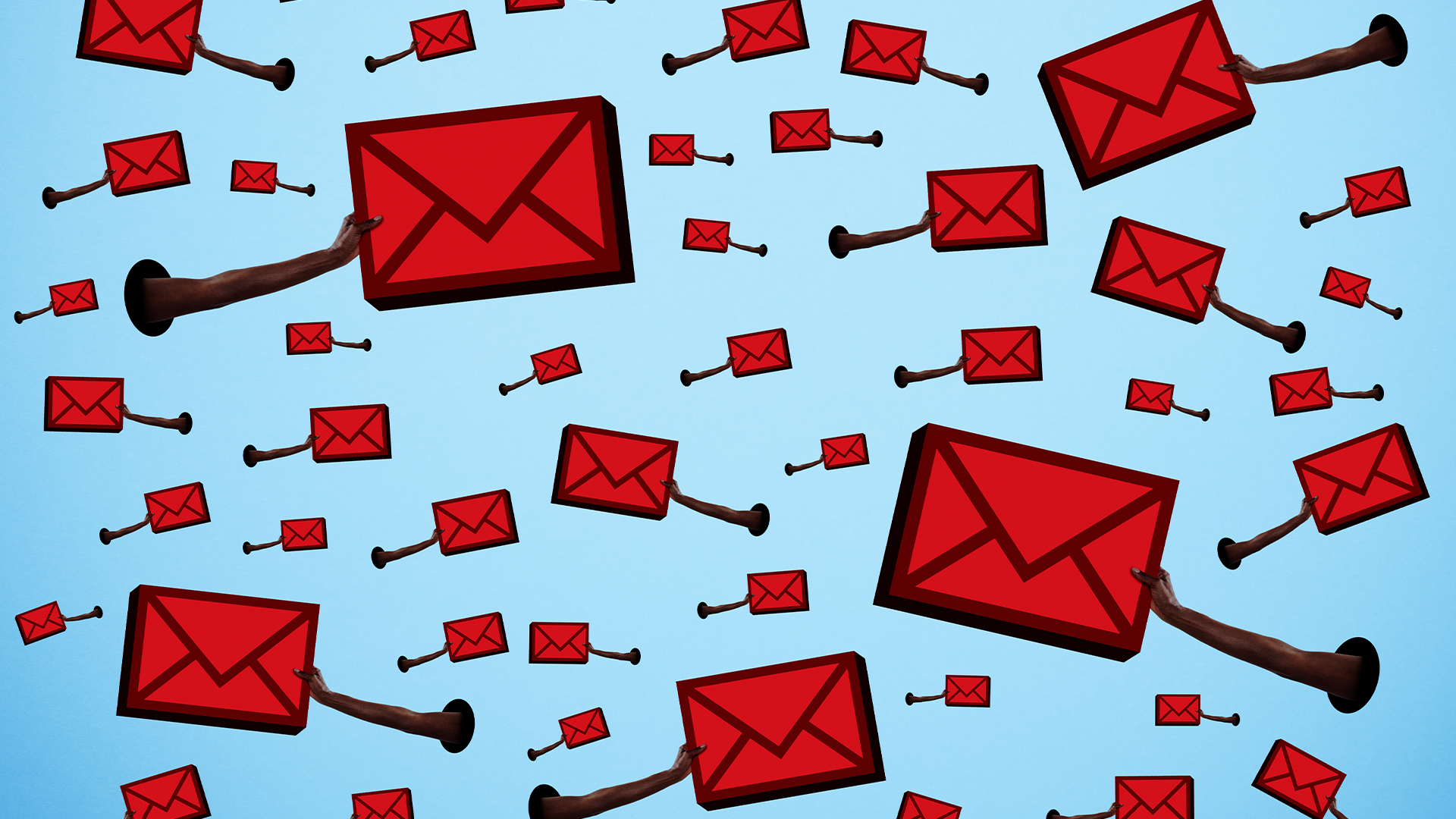Healthcare organizations are turning a blind eye to phishing attacks
A survey reveals that most attacks go unreported, putting patient data at risk


Sign up today and you will receive a free copy of our Future Focus 2025 report - the leading guidance on AI, cybersecurity and other IT challenges as per 700+ senior executives
You are now subscribed
Your newsletter sign-up was successful
The vast majority of phishing attacks against the healthcare sector go unreported to security teams, leaving organizations unable to fully learn from their mistakes.
In a survey of 150 US-based healthcare IT leaders for secure email firm Paubox, six-in-ten said they had experienced at least one email security breach last year, and three-quarters that they expected even more security challenges this year.
The top risks were phishing, man-in-the-middle attacks, and password guessing, often through personal information revealed on social media.
However, IT leaders said 95% of phishing attacks went unreported to security teams, along with 96% of known email violations of the 1996 Health Insurance Portability and Accountability Act (HIPAA), aimed at protecting sensitive health information from disclosure without patient's consent.
As a result, these incidents weren't investigated, meaning that systems weren’t patched, staff weren’t alerted, and patients weren’t warned that their data may be at risk.
"We encountered a significant case where an outdated email system directly impacted patient care due to a cybersecurity breach," said Matt Murren, CEO of healthcare IT support firm True North ITG.
"The phishing attack compromised user credentials and eventually deployed ransomware across the network. It shut systems down for two weeks. Appointments were delayed. Test results were inaccessible. Urgent care cases were diverted elsewhere. Patients lost trust. This isn’t just an IT failure — it’s a patient safety crisis."
Sign up today and you will receive a free copy of our Future Focus 2025 report - the leading guidance on AI, cybersecurity and other IT challenges as per 700+ senior executives
The problem doesn't seem to be a lack of awareness amongst staff. Nine-in-ten said they carried out staff training.
Ryan Winchester, CareM director of information technology, said "no amount of training can completely eliminate human error, so businesses must have safeguards in place."
The report found that healthcare organizations currently allocate only 11–20% of their IT budgets to email security, despite email being their top risk area. One persistent problem is poor infrastructure, with 83% of healthcare IT leaders saying that legacy systems disrupt day-to-day operations.
"I’ve seen first-hand how legacy email platforms can quietly — but critically — undermine operational stability and efficiency across healthcare organizations" said Murren.
In larger healthcare networks, the most common challenges include high maintenance costs that drain IT resources, persistent security vulnerabilities, outdated and complex user interfaces, system performance bottlenecks, and limited support for mobile and remote working.
The result is reactive firefighting, with about 37% of healthcare IT leaders spending between 11 and 20 hours per week just resolving secure email tickets.
"Healthcare doesn’t need more patchwork fixes — it needs a mindset shift. Patients expect secure, convenient communication, and it’s on us to meet that standard," said CEO of Paubox Hoala Greevy.
MORE FROM ITPRO
- Are phishing tests a waste of time?
- 10 quick tips for identifying phishing emails
- Phishing tactics: The top attack trends
Emma Woollacott is a freelance journalist writing for publications including the BBC, Private Eye, Forbes, Raconteur and specialist technology titles.
-
 Anthropic researchers warn AI could 'inhibit skills formation' for developers
Anthropic researchers warn AI could 'inhibit skills formation' for developersNews A research paper from Anthropic suggests we need to be careful deploying AI to avoid losing critical skills
-
 CultureAI’s new partner program targets AI governance gains for resellers
CultureAI’s new partner program targets AI governance gains for resellersNews The new partner framework aims to help resellers turn AI governance gaps into scalable services revenue
-
 Hackers are using LLMs to generate malicious JavaScript in real time – and they’re going after web browsers
Hackers are using LLMs to generate malicious JavaScript in real time – and they’re going after web browsersNews Defenders advised to use runtime behavioral analysis to detect and block malicious activity at the point of execution, directly within the browser
-
 Thousands of Microsoft Teams users are being targeted in a new phishing campaign
Thousands of Microsoft Teams users are being targeted in a new phishing campaignNews Microsoft Teams users should be on the alert, according to researchers at Check Point
-
 Microsoft warns of rising AitM phishing attacks on energy sector
Microsoft warns of rising AitM phishing attacks on energy sectorNews The campaign abused SharePoint file sharing services to deliver phishing payloads and altered inbox rules to maintain persistence
-
 LastPass issues alert as customers targeted in new phishing campaign
LastPass issues alert as customers targeted in new phishing campaignNews LastPass has urged customers to be on the alert for phishing emails amidst an ongoing scam campaign that encourages users to backup vaults.
-
 Hacked London council warns 100,000 households at risk of follow-up scams
Hacked London council warns 100,000 households at risk of follow-up scamsNews The council is warning residents they may be at increased risk of phishing scams in the wake of the cyber attack.
-
 Warning issued as surge in OAuth device code phishing leads to M365 account takeovers
Warning issued as surge in OAuth device code phishing leads to M365 account takeoversNews Successful attacks enable full M365 account access, opening the door to data theft, lateral movement, and persistent compromise
-
 Complacent Gen Z and Millennial workers are more likely to be duped by social engineering attacks
Complacent Gen Z and Millennial workers are more likely to be duped by social engineering attacksNews Overconfidence and a lack of security training are putting organizations at risk
-
 The Scattered Lapsus$ Hunters group is targeting Zendesk customers – here’s what you need to know
The Scattered Lapsus$ Hunters group is targeting Zendesk customers – here’s what you need to knowNews The group appears to be infecting support and help-desk personnel with remote access trojans and other forms of malware
